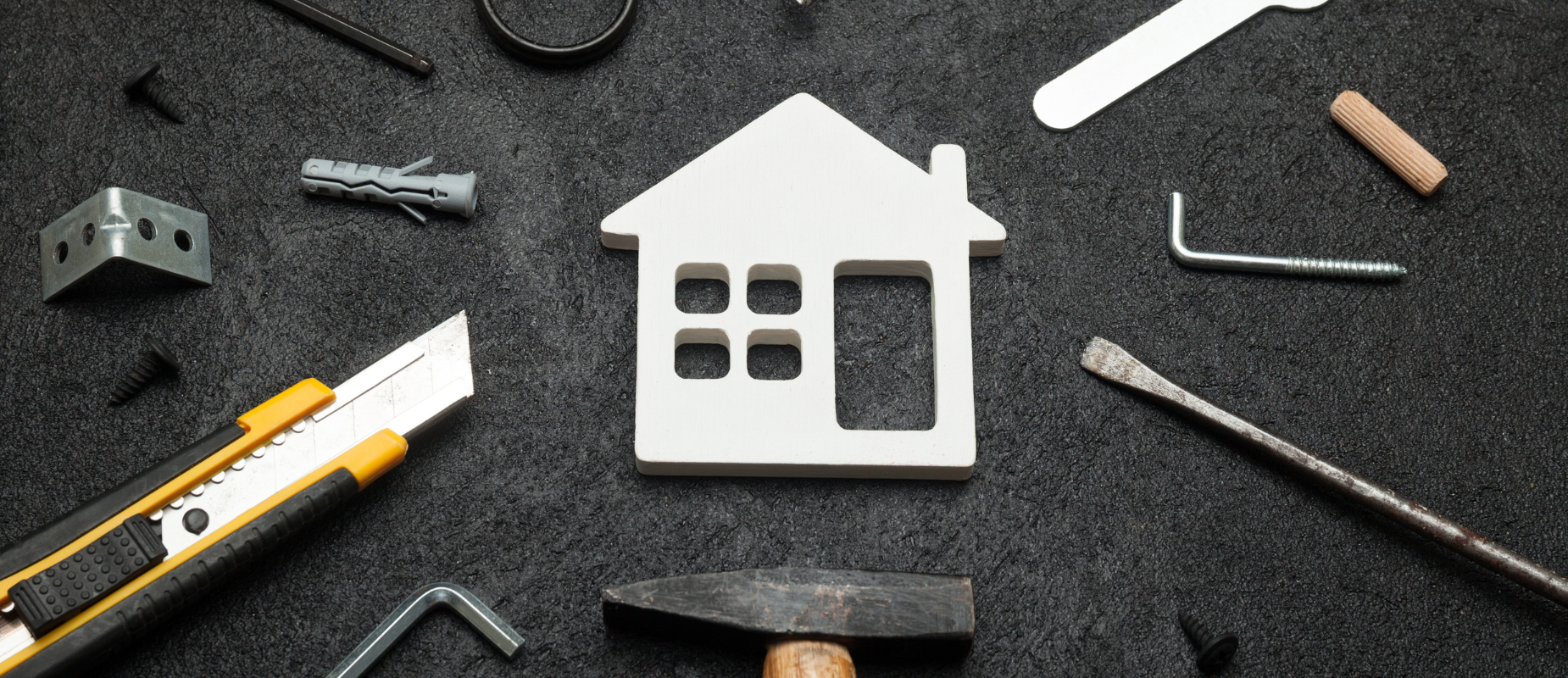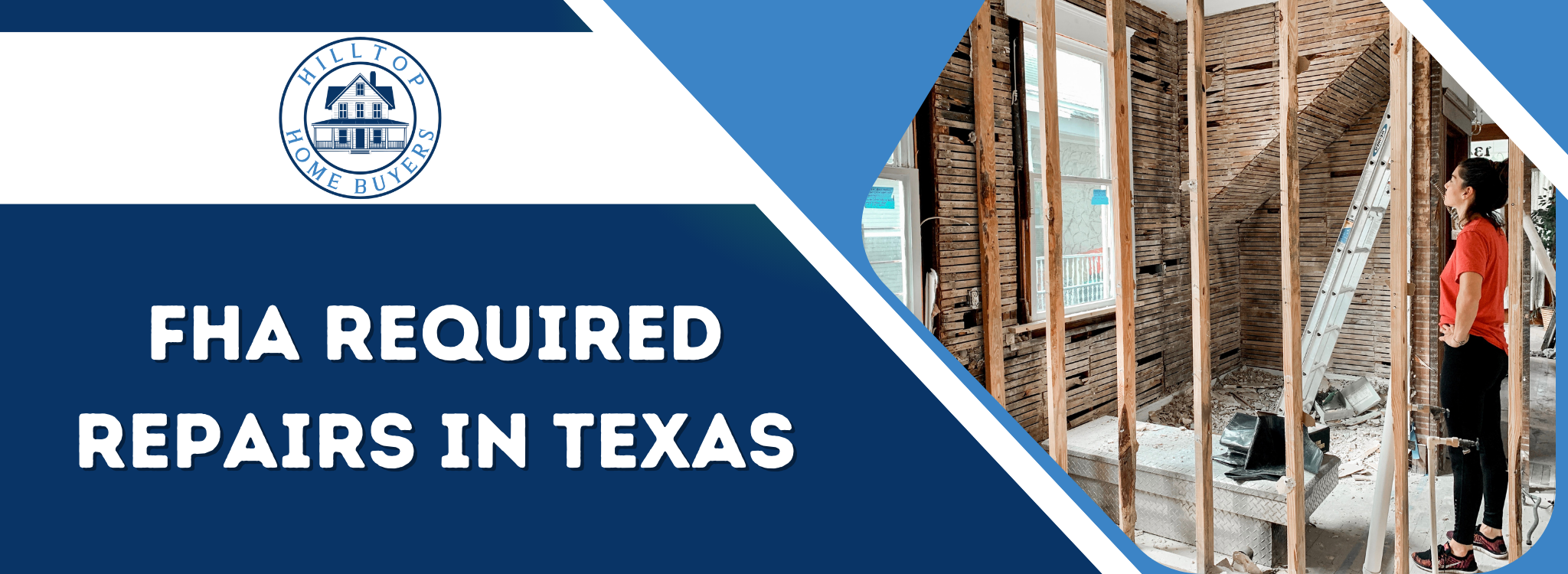
FHA Required Repairs in Texas: Key Considerations
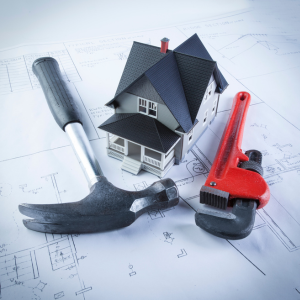
Knowing the FHA-required repairs is important for homeowners and homebuyers when looking at an FHA loan in Texas. The Federal Housing Administration (FHA) has rules to ensure homes are safe and have good market value. These rules help keep the home in good condition and ensure it can get FHA loan approval.
What Defines FHA Required Repairs?
FHA repair requirements in Texas focus on safety and appraisal standards. They ensure homes meet FHA minimum property standards. Important points include:
- Safety hazards: No immediate risks to occupants.
- Structural integrity: The property must be structurally sound.
- Basic utilities: Plumbing, electricity, and HVAC must work well.
Lenders and homebuyers need to know these standards for the FHA loan process in Texas.
Common Repair Categories Under FHA Guidelines

FHA repair categories look at different aspects of a home’s condition, including:
- Safety hazards: Issues like broken windows or exposed wiring.
- Cosmetic issues: Not usually required, but noticeable cosmetic damage might matter during appraisal.
- Structural soundness: Important for loan approval; structural problems must be fixed.
- Electrical system standards: All electrical parts must work safely.
- Plumbing standards: Plumbing should not leak and must work well.
- Heating and cooling requirements: Systems should keep the place at a comfortable temperature.
Each category affects whether a home can get FHA financing.
How Defects Impact Loan Approval
Defects found during appraisal can affect FHA loan approval. Lenders need to be sure the home meets all requirements by:
- Setting up a repair escrow to fix issues before closing.
- Meeting lender requirements to comply with underwriting guidelines.
- Fixing appraisal differences to meet FHA standards.
Knowing these effects helps keep things compliant and smooth the transaction process.
How to Prepare for FHA Repair Requirements
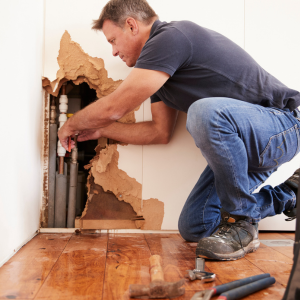
Getting ready for FHA repairs can make real estate deals easier. Homeowners and real estate pros should take steps to stay compliant.
Steps to Take Before the Appraisal
Before the appraisal, prepare by:
- Pre-inspection: Check the property to spot issues early.
- Property evaluation: Use a checklist to make sure everything meets FHA requirements.
- Repair checklist: Fix issues found to avoid later problems.
- Consult lenders: Ask about specific FHA appraisal requirements or contingencies.
Being prepared helps remove roadblocks to FHA loan approval.
Engaging Contractors for Assessments
Hiring contractors for thorough checks can give accurate repair evaluations and cost estimates. Consider the following:
- Get an expert assessment to find all needed repairs.
- Ask for detailed costs to help with planning and talks.
- Make sure evaluations match FHA inspection requirements.
This approach ensures repairs meet FHA guidelines and smooths lending and negotiation in real estate deals.
Understanding Specific FHA Repair Standards in Texas
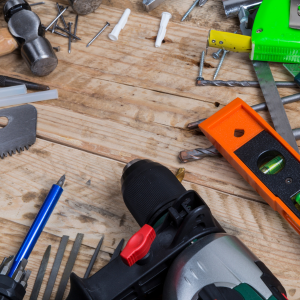
If you’re considering buying a home in Texas with an FHA loan, you should know the repair standards. The FHA appraisal guidelines in Texas make sure homes are safe and livable. This means the house needs to be structurally sound and safe for people to live in.
What Are the Texas-specific FHA Repair Standards?
Texas has unique factors that impact FHA repair standards. The FHA appraisal requirements consider the home’s condition, safety, and whether it follows the rules. The process for an FHA appraisal in Texas includes checks to ensure homes meet FHA property requirements and local guidelines.
Regional Factors Affecting Repair Criteria
Texas has specific regional factors that affect FHA repair criteria. For example, the state’s climate and geography require careful attention to FHA grading and drainage to handle water runoff. Maintenance is crucial so homes can withstand Texas’s harsh weather conditions.
Differences Between National and State Guidelines
National FHA property requirements set a basic standard, but Texas state guidelines add more details. Knowing the differences is essential. For instance, the Texas FHA loan process might include extra steps, as shown in the FHA inspection checklist made for Texas homes.
How Do Weather Conditions Influence FHA Repairs in Texas?
Texas weather conditions significantly impact FHA repairs and property standards. Weather can affect a home’s livability and structural strength, making it necessary to follow FHA habitability standards to keep the property in good shape over time.
Impact of Texas Climate on Property Condition
The Texas climate can be challenging for keeping a property in good condition. The weather influences factors like foundation repair and grading. Regular maintenance is needed to lessen the effects of extreme temperatures and possible flooding.
Preparing for Seasonal Inspections
Preparing for seasonal inspections in Texas means following a detailed FHA inspection checklist. During these inspections, making sure the home meets FHA safety standards helps maintain its value and meets all required guidelines.
The Role of Buyers and Sellers in FHA Repairs

It’s important to know what buyers and sellers need to do in real estate deals with FHA loans. FHA repair guidelines in Texas set specific rules that both sides must follow for a property to qualify for financing.
What Responsibilities Do Buyers Have in FHA Repair Processes?
When dealing with FHA loans, buyers should know their duties regarding repairs. This knowledge helps avoid money problems:
Financial Considerations for Repairs
- Buyers should consider how much maintenance will cost and how it will affect their loan.
- Lenders might require an FHA repair escrow to pay for needed repairs.
- Talking to the lender about money matters helps buyers plan for extra costs tied to the mortgage.
Negotiating Repair Terms With the Seller
- It’s key to speak with the seller about repairs that need to be done.
- Buyers can try to add repair terms to the contract so everyone agrees on who does what.
- Good talks in real estate deals can lead to fair terms for buyers and sellers.
How Can Sellers Ensure Compliance With FHA Repair Requirements?

Sellers have a big duty to make sure their property meets FHA repair requirements. Following these rules is vital for a smooth deal:
Pre-sale Property Evaluations
- Doing an appraisal and checking the property before selling is key to spotting issues early.
- Property inspections by qualified appraisers and realtors can find problems needing fixing before putting the home up for sale.
- Early checks can make sales smoother by handling concerns before they affect talks.
Addressing Common Seller Concerns
- Sellers often worry about meeting FHA rules and the costs of property upkeep.
- Understanding and dealing with these worries early can keep the property attractive.
- Working with realtors to understand FHA rules can help sellers make wise choices.
For a hassle-free home sale, Hilltop Home Buyer purchases houses directly for cash. Contact us today for expert guidance tailored to your real estate needs!
Navigating the FHA Inspection and Appraisal Process in Texas

Buying a home can be complex, especially when dealing with the FHA inspection and appraisal process. This step ensures the property you want to buy meets necessary standards before finalizing your real estate transaction in Texas. Knowing what happens during this process can help make buying smoother.
What Happens During an FHA Inspection?
An FHA inspection checks if a property meets FHA minimum property standards. Inspectors look at FHA safety standards, focusing on the structure and habitability of the home. They use an FHA inspection checklist to spot safety hazards that could harm the buyer. These inspections are necessary because they protect buyers by finding significant issues to fix before purchase.
Key Elements Inspectors Focus on
During an inspection, these key elements are checked:
- FHA Safety Standards: Ensuring no risks to people living in the home.
- FHA Structural Soundness: Checking foundation and wall integrity.
- FHA Heating and Cooling Requirements: Making sure systems work well.
- FHA Electrical System Standards: Assessing electrical installations for safety and adequacy.
- FHA Plumbing Standards: Evaluating plumbing system installation and functionality.
- FHA Roof Requirements: Ensuring the roof is watertight and will last more than two years.
Structuring a Successful Inspection Preparation
Getting ready for an FHA inspection involves more than just cleaning up a bit:
- Use the FHA Inspection Checklist: Address each point carefully.
- Think About FHA Repair Escrow: Set aside money for needed repairs.
- Maintain FHA Property: Regular upkeep prevents costly fixes.
- Meet FHA Energy Efficiency Requirements: Compliance can improve approval chances.
- Know FHA Lender Requirements: Ensure your preparations match lender expectations.
How is an FHA Appraisal Different in Texas?
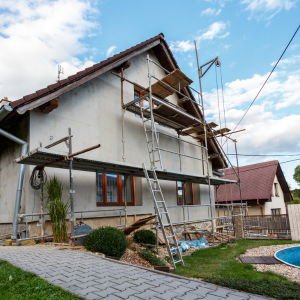
The Texas FHA appraisal process has unique traits that differ from inspections. Inspections focus on safety and repairs, but appraisals assess the property’s market value and compliance with FHA guidelines in Texas. This valuation decides FHA loan eligibility.
Insights Into Texas Appraisal Procedures
Understanding Texas-specific procedures can affect results:
- Texas FHA Appraisal Process: Involves evaluating the property’s worth.
- FHA Property Valuation: Based on local market conditions and comparisons.
- FHA Appraisal Contingencies: Conditions that must be met to continue the loan.
- FHA Closing Process Texas: Ensures all appraisal aspects align with closing needs.
- FHA Resale Requirements: Deals with FHA rules about property resale.
Addressing Appraisal Discrepancies
If appraisal results aren’t as expected, consider these actions:
- FHA Appraisal Repairs: Repairs are needed to resolve valuation concerns.
- FHA Underwriting Guidelines: Work with underwriters to understand and fix issues.
- FHA Appraisal Contingencies: Use a real estate expert to negotiate terms.
- Effective Communication: Keep a dialogue with lenders to manage discrepancies.
By understanding these processes, home buyers can make informed choices and confidently handle FHA requirements. For further help or questions, seek professional guidance tailored to your needs.
Ensuring Smooth FHA Loan Approval with Proper Repairs

What Steps Can Expedite FHA Loan Approval?
Getting an FHA loan can be quicker if you follow specific steps. Here are some tips:
- Fix Needed Repairs Early: Check the property for any issues before applying. Fixing these repairs early helps meet FHA property conditions and avoids delays.
- Work with Experienced Lenders: Choose a lender familiar with FHA loans. Their experience will help make your application process smoother.
- Get Your Documentation Ready: To meet FHA appraisal guidelines in Texas, collect all your documents ahead of time, such as income verification and property details.
- Schedule Appraisals and Inspections Soon: Work with your lender to schedule appraisals and inspections quickly. This will help efficiently manage any needed FHA repair escrow.
- Stay in Touch with Your Lender: Regular communication with your lender can resolve issues fast and keep the FHA closing process in Texas on track.
How Does Proper Documentation Aid FHA Repair Clearance?
The right paperwork is key to a smooth FHA loan process, especially for repairs. Here’s why it’s important:
- Helps Communicate with Lenders: Clear documentation makes talking with lenders and appraisers easier, which is essential for meeting FHA appraisal requirements.
- Makes Appraisals Accurate: Detailed information helps appraisers do their job well and follow FHA guidelines. This can speed up the FHA closing process in Texas.
- Keeps Buyers Informed: Good documentation helps buyers understand what’s needed to meet FHA standards.
- Supports FHA Guidelines Compliance: Proper paperwork ensures you meet FHA appraisal guidelines in Texas, reducing problems after inspection.
Need to sell your home without worrying about FHA-required repairs? Hilltop Home Buyer purchases houses directly for cash, providing a hassle-free solution. Contact us today for a smooth and stress-free sale!
FAQs:
What Are the FHA Repair Requirements in Texas?
When buying a home in Texas with an FHA loan, certain repairs must be made to ensure the house is safe and livable. This includes fixing chipping or lead-based paint, ensuring good drainage, checking the water supply, and repairing gutters. These steps ensure the property stays valuable and safe.
Do FHA Loans in Texas Require a Termite Inspection?
Yes, FHA loans often require a termite inspection in Texas. This is to ensure the home doesn’t have any infestations, which helps protect the structure and keeps it safe for living.
How Do FHA Rules Address Chipping Paint and Lead-based Paint in Texas Homes?
The FHA requires fixing any chipping or peeling paint, especially in homes built before 1978 that might have lead-based paint. This is important for safety because lead exposure can be harmful, especially to children.
What Are the FHA Energy Efficiency Requirements for Texas Homes?
The FHA promotes energy efficiency to save money and protect the environment. Requirements usually include sound insulation and windows. These help make the home more sustainable and lower utility bills.
Are There FHA Stipulations for Smoke and Carbon Monoxide Detectors in Texas?
FHA guidelines require Texas homes to have working smoke and carbon monoxide detectors. These detectors are important for safety, protecting people from potential dangers.
What are the FHA repair requirements regarding Stairs, doors, and windows?
FHA standards require all stairways, doors, and windows to be safe and work properly. This means railings should be secure, and doors and windows should open and close easily, meeting safety codes for safe living.
How Does “as-is” Sales Work Under FHA Guidelines in Texas?
In an “as-is” sale with FHA guidelines, buyers must fix any issues the FHA appraisal finds. The property has to meet minimum standards before closing, even if sold “as-is,” to ensure all necessary repairs are done. Learn Details about selling a home that needs repairs in Dallas.
What Should Texas Buyers Know About FHA Hazard Insurance Requirements?
FHA loans require hazard insurance to cover damages from natural events like fires or storms. This is especially important in Texas due to unpredictable weather, protecting lenders’ and buyers’ investments.
Key Insights
- Understanding FHA-required repairs in Texas is essential for home buyers. This includes dealing with FHA termite inspection needs and FHA chipping paint repairs.
- In Texas, FHA repair requirements include important areas like FHA lead-based paint rules and FHA occupancy regulations.
- We ensure your property follows FHA as-is sale conditions and help you meet the required FHA smoke detector rules and carbon monoxide detector requirements.
- Texas repair laws include FHA insulation requirements; we can help you meet these standards easily.
- To pass inspections, follow important FHA stairway repair guidelines and respect FHA door and window standards.
- Our knowledge covers the FHA railings requirement, ensuring homes are safe and comply with rules across Texas.
- The FHA property inspection waiver can make buying easier, but knowing which required repairs FHA involves is still essential.
- Visit our blog to learn more about the Texas needed repairs and keep up with local FHA Texas regulations.
- Contact us today to see how we can help you understand FHA-required repairs in Texas.
We operate all over Texas, including Fort Worth, Austin, San Antonio, El Paso, Houston, and Arlington. As the same state laws apply, the process is the same no matter where in Texas you and your probate home are located. If you need further assistance, please contact us at (833) 962-2274. visit our website to learn more about our company.

